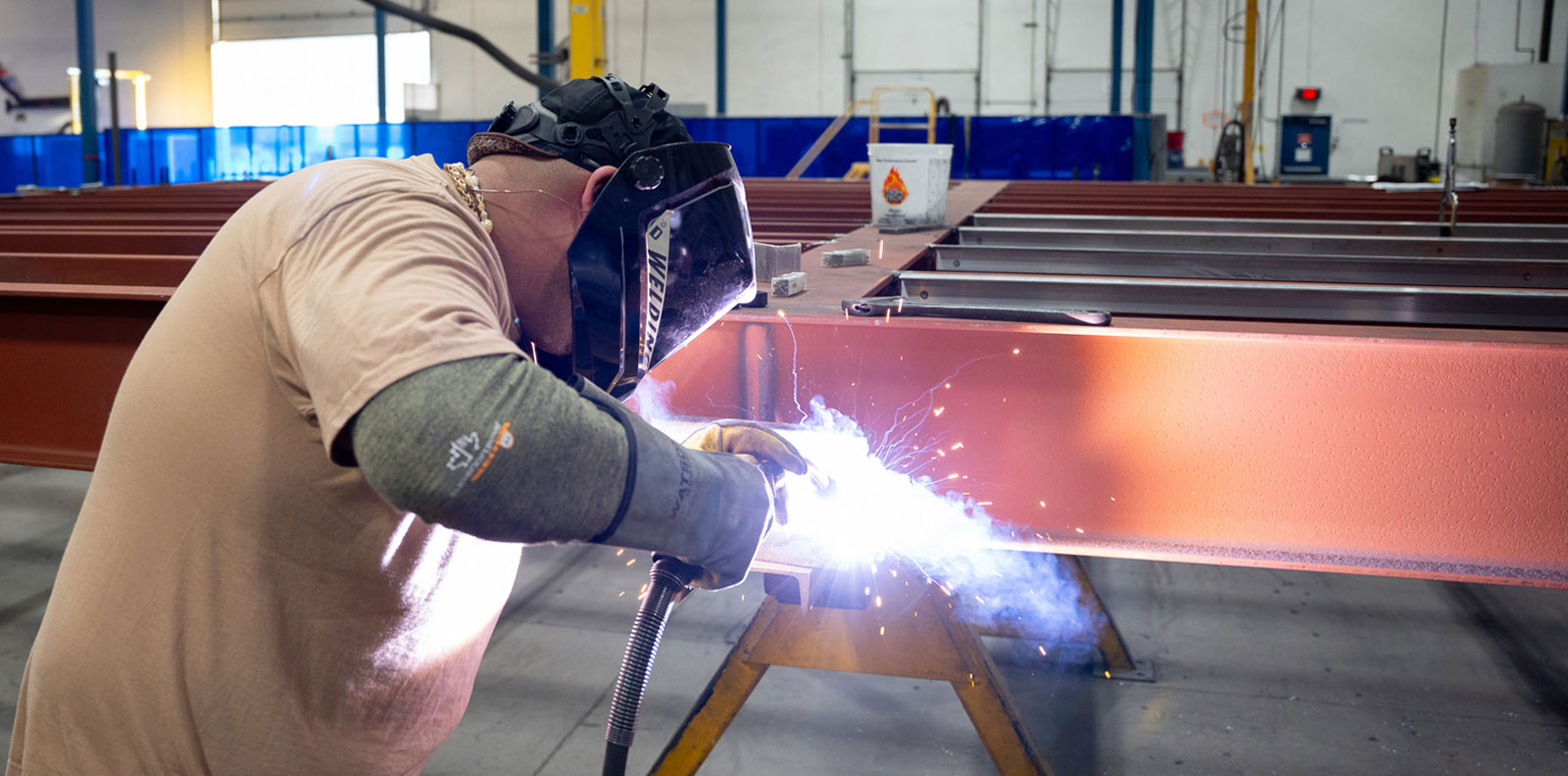RSI is a Great Training Option for Everyone
Learn more about how we can prepare you to advance your career.
The cost of electricity is rising and there is a need for more nuclear and powerplant facilities to keep up with electricity demand. The good news is that this increase in electrical infrastructure will increase the demand for welders that can weld and fabricate components used in power plants.
What to Know About a Nuclear/Powerplant Welding Career
A powerplant welder specializes in welding and fabricating components used in power plants that generate electricity using fossil fuel, nuclear, hydroelectric, and renewable energy. They help maintain the powerplants that generate electricity. Some of the key responsibilities of a powerplant welder include:
Fabrication and Welding
Powerplant welders join together metal components to construct, repair, or reinforce power plant structures for boilers, pressure vessels, heat exchangers, pipelines, turbines and generators. They use welding techniques such as TIG (Tungsten Inert Gas), MIG (Metal Inert Gas), arc welding, and submerged arc welding. The same welding techniques that are offered in the Welding training at The Refrigeration School (RSI).
Inspection and Maintenance
Powerplant welders inspect welds and structures for cracks, wear, or other signs of deterioration. They also perform routine maintenance on powerplant equipment to prevent failures or shutdowns.
Cutting and Fitting
Powerplant welders cut and shape metal parts using plasma cutters, grinders, or torches. They must ensure proper alignment and fit before welding.
Get Started on the Path to a New Career
Fill out our form to learn how we can help you change your life.
Adherence to Standards
Powerplant welders must follow strict safety and quality standards, such as ASME Boiler and Pressure Vessel Code1 and AWS D1.1 Structural Welding Code2. They must ensure compliance with environmental and regulatory guidelines for power plants.
What is the Work Environment Like for Powerplant Welders?
The work environment of powerplant welders is very demanding, reflecting the importance of their role in maintaining the infrastructure of power generation facilities. These environments often challenge the powerplant workers in ways that can only be learned by doing. Some of the complexities of power plant welding include:
Extreme Physical Conditions
Powerplant welders often work in tight, enclosed areas such as boiler rooms or inside pressure vessels. This requires flexibility and comfort working in constrained positions for extended periods. Work is commonly performed near high-temperature equipment like boilers, exposing powerplant welders to heat. Also, powerplants are typically noisy due to running machinery, requiring welders to use ear protection.
● Fossil Fuel Plants – Exposure to soot, ash, and other byproducts of combustion while maintaining high-pressure steam systems and pipelines.
● Nuclear Plants – Higher safety protocols due to potential radiation exposure that includes specialized training for working in controlled environments.
Safety Challenges
Powerplant welders may be exposed to hazardous substances like chemicals, gases, or asbestos in older facilities. Proper safety gear, including respirators and protective suits, is critical.
Powerplant welding involves high heat, sparks, and ultraviolet (UV) light, posing risks, such as burns, eye injuries, or respiratory issues. Strict adherence to safety protocols, including wearing personal protective equipment (PPE) like welding helmets, gloves, and flame-resistant clothing, is essential. For example, welders in nuclear powerplants may encounter environments with low levels of radiation, necessitating additional safety measures and monitoring.
Work Schedule
Many powerplants operate 24/7, meaning welders may work in shifts, including nights, weekends, and holidays. During scheduled outages or maintenance periods, welders may work extended hours to complete tasks on time.
Why are Powerplant Welders Important?
Powerplant welders are vital to the functionality, safety, and efficiency of powerplant infrastructure. Their specialized skills ensure that this critical infrastructure operates reliably.
Ensuring Structural Integrity
Powerplant welders repair and maintain boilers, pressure vessels, and pipelines, which are constantly subjected to high temperatures, pressures, and mechanical stress. Their expertise in creating strong, defect-free welds prevents equipment failures that could lead to costly outages or catastrophic accidents.
Supporting Energy Generation
Powerplant welders play a key role in minimizing downtime by promptly repairing equipment during scheduled maintenance or emergencies. They also fabricate and modify systems to improve energy efficiency, ensuring optimal performance of power generation systems.
Safety and Compliance
Powerplant welders ensure that systems meet safety standards, reducing risks of explosions, leaks, or radiation exposure in nuclear facilities. Their work adheres to industry codes and regulations, such as ASME and AWS standards, ensuring legal and operational compliance.
Adapting to Industry Advancements
Powerplants increasingly rely on advanced materials and innovative designs, requiring welders to adapt and apply cutting-edge techniques. Welders are essential for constructing new power facilities, especially in regions experiencing growth in energy demand or transitioning to renewable sources.
Promoting Economic Stability
Quick and effective repairs by powerplant welders help prevent financial losses associated with power outages. Plus, welding roles within powerplants support the broader economy by creating skilled employment opportunities.
Powerplant welders are important for maintaining the reliability, efficiency, and safety of power generation systems. Their work directly impacts energy availability, environmental sustainability, and national infrastructure resilience. Without their expertise, the U.S. economy, trade and business would grind to a halt. Fortunately, these unsung heroes are working tirelessly to keep our powerplants running smoothly.
Want To Learn More?
The welding certification path starts with enrolling in RSI’s Welding Specialist program. We offer hands-on training with classroom lectures to prepare you for entry-level structural, alloy, and pipeline welding job opportunities. To learn more, contact us.
1) https://www.asme.org/codes-standards/bpvc-standards
2) https://pubs.aws.org/p/873/d11d11m2010-2nd-printing-structural-welding-code-steel-historical?srsltid=AfmBOoq2CcIr0yADheCGRFzK4TpyTUzezHh1JooKBNw1bpHnKT9RAgEo




